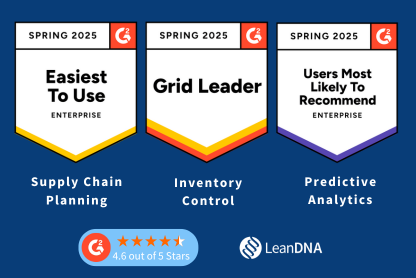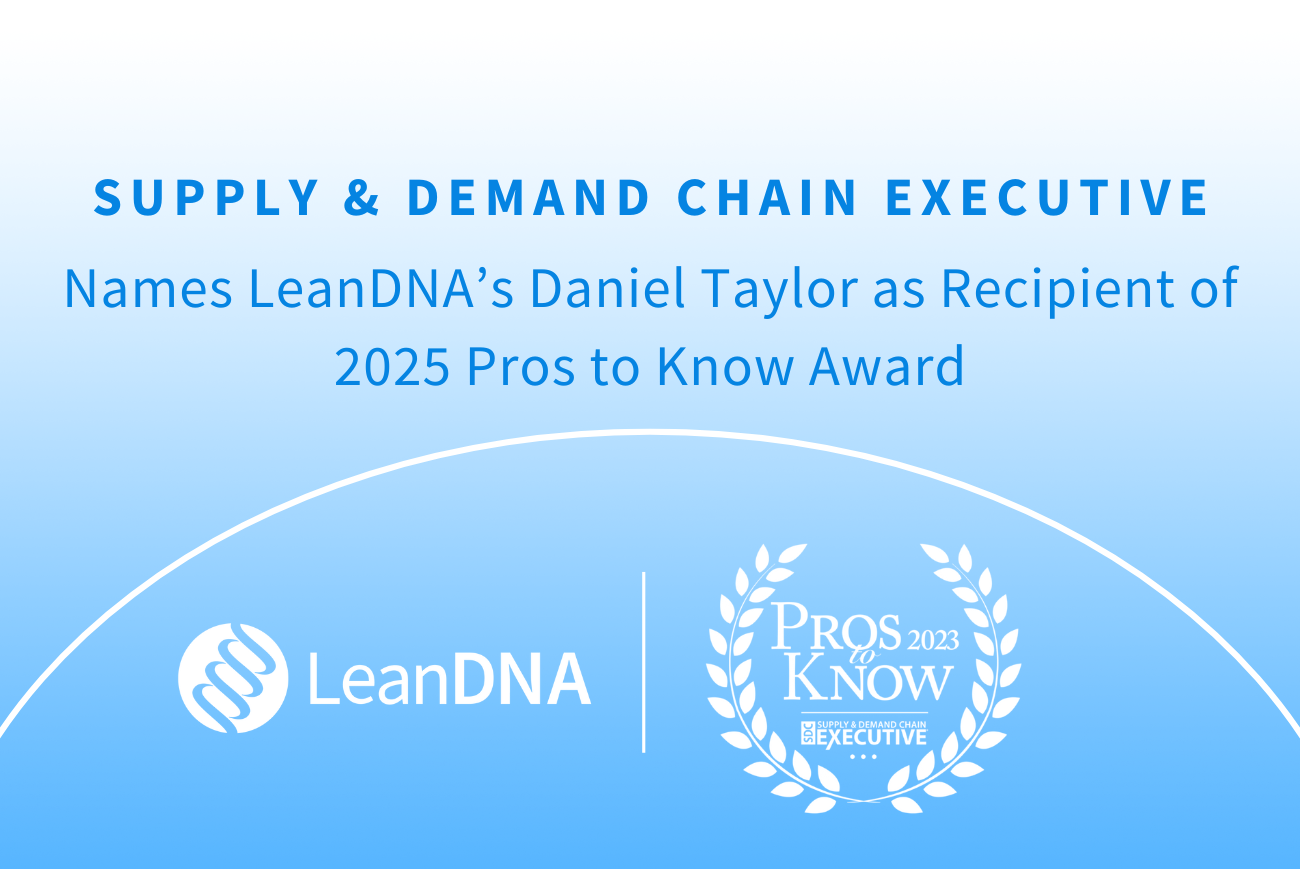This post was written by LeanDNA’s Head of Product, Sabari Krishnan
At LeanDNA, we frequently engage in discussions with our discrete manufacturing customers about the evolving role of artificial intelligence (AI) in supply chain management. These discussions help us understand the successes, challenges, and significant opportunities in this area. AI is undeniably transforming industries, and the supply chain domain is no exception. As AI continues to advance, its applications within the supply chain are expanding, providing manufacturers with unparalleled opportunities to optimize operations, enhance decision-making, and increase efficiency. In this post, we will explore how supply chain leaders are currently utilizing AI and examine future trends in the industry.
From Reactive to Proactive: AI's Expanding Role
While early uses of AI in the supply chain domain were often concentrated on automating routine tasks and providing insights based on historical data, these applications were largely reactive in nature. However, as AI models become more sophisticated and integrated with real-time data streams, the paradigm is shifting towards a more proactive approach. These advanced AI models can be deployed to analyze vast amounts of data to generate insights that drive more intelligent decision-making.
Here are some use cases where AI can provide greater value:
Demand Forecasting: Navigating Volatility with AI
One of the most formidable challenges in supply chain management is demand forecasting. Conventional forecasting methodologies frequently fail to accommodate volatile demand signals and external factors. However, AI-powered forecasting tools can analyze extensive data from diverse sources, identify patterns, and generate more accurate and responsive forecasts. This allows manufacturers to anticipate demand fluctuations, optimize inventory levels, and mitigate the risk of stockouts or overstock situations. For instance, Spirit Aerosystems utilized LeanDNA to enhance forecasting accuracy, which resulted in a 16% reduction in inventory and a 20% improvement in on-time delivery, even under volatile demand conditions.
Constraint-Based Optimization: Unlocking Operational Efficiency
Artificial intelligence (AI) can optimize production schedules and resource allocation by identifying bottlenecks, leading to improved on-time delivery and operational efficiency. AI models analyze data from across the supply chain to provide real-time visibility into potential constraints and enable proactive decision-making to mitigate disruptions.
Vatsal Gandhi, former Executive Director of Supply Chain at Modine, emphasizes the need to streamline manual supply chain processes, stating,
We need to reduce our reliance on spreadsheets. We must ask ourselves if our current processes are scalable and sustainable. It is imperative to invest in smart learning and decision-making platforms, such as LeanDNA, which can facilitate greater agility.
From Data Overload to Trusted, Scalable Insights
Manufacturers are overwhelmed by the sheer volume of data they have access to and struggle to glean actionable insights from it. Artificial intelligence (AI) can automate data analysis and visualization, transforming raw data into meaningful information and allowing manufacturers to identify trends and opportunities, which ultimately leads to better decision-making. By leveraging AI, supply chain professionals can save valuable time and focus on strategic initiatives. However, AI’s impact depends on trust, data accuracy, and scalability. AI-driven recommendations must be transparent and validated before implementation to establish trust. Furthermore, it is essential to ensure that AI solutions can scale effectively across various areas of the supply chain to optimize operations and drive real business outcomes.
The Future of AI in Manufacturing
The continuous evolution of AI models will expand their applications in supply chain management. AI is poised to revolutionize every aspect of supply chain management, from enhancing supplier collaboration to optimizing logistics and product quality. Furthermore, AI has the potential to transform every facet of manufacturing, from predictive maintenance and quality control to autonomous logistics and smart factories.
While concerns surrounding data privacy, regulatory compliance, and the necessity for human oversight persist, the advantages of AI for manufacturers are irrefutable. By embracing AI and addressing its challenges, manufacturers can unlock new levels of efficiency, agility, and competitiveness. AI is the key to unlocking the full potential of the intelligent future of manufacturing.
Our Commitment to AI in LeanDNA
LeanDNA is committed to developing AI solutions that are not only powerful but also trusted, scalable, and tailored to the real-world challenges of discrete manufacturers. Our focus is on delivering AI-driven insights that improve supply chain execution, enhance decision-making, and create measurable business impact—while ensuring transparency and trust in every recommendation.
If you're interested in learning more about how LeanDNA is using AI to transform inventory optimization and supply chain execution, click here to schedule a demo.



